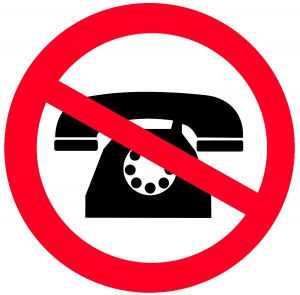June 23, 2015
 In its Open Meeting last Thursday, the Federal Communications Commission (the “FCC” or “Commission”) adopted what has been called a “package of declaratory rulings.” The narrowly passed TCPA Declaratory Ruling and Order (FCC 15-72), which has not yet been officially released, will address 21 petitions and other requests for clarity concerning the FCC’s interpretation of the Telephone Consumer Protection Act (“TCPA”).
In its Open Meeting last Thursday, the Federal Communications Commission (the “FCC” or “Commission”) adopted what has been called a “package of declaratory rulings.” The narrowly passed TCPA Declaratory Ruling and Order (FCC 15-72), which has not yet been officially released, will address 21 petitions and other requests for clarity concerning the FCC’s interpretation of the Telephone Consumer Protection Act (“TCPA”).
How will the FCC’s new ruling affect telemarketers’ TCPA compliance practices?
With its announcement in late May, the Commission heralded the forthcoming TCPA Declaratory Ruling as “one of the most significant FCC consumer protection actions since it established the Do-Not-Call Registry with the FTC in 2003.” Although the ruling was ultimately passed, three of the five FCC Commissioners dissented to all or part of the action.
Expansion of Autodialer Definition
The TCPA Declaratory Ruling purportedly expands the TCPA’s definition of an “Automatic Telephone Dialing System” (also known as an “autodialer” or “ATDS”) to include devices with the potential to make future random or sequential calls. Commissioner Michael O’Rielly, who referred to the ruling as “ludicrous” and “unfathomable,” described the Commission’s expansive definition as follows:
Equipment that could conceivably function as an autodialer in the future comes as an autodialer today. Indeed the new definition is so expansive that the FCC has to use a rotary phone as an example of technology that would not be covered because the modification needed to make an autodialer would be too extensive. That is like the FAA regulating vehicles because with enough modifications, cars and trucks could fly, and then using an example of a skateboard as a vehicle that does not meet that definition.
Protections for App Providers
According to the Commission, the TCPA Declaratory Ruling will establish that mobile application providers that play a minimal role in telemarketing calls are not the calling party for TCPA purposes. Commissioner Ajit Pai remarked that “app providers won’t face liability because they don’t initiate calls placed by other users.” Additional details on this new shelter provision have not been revealed as of this writing.
Consent from Actual Called Party
Last Thursday, the Commission interpreted the TCPA to require the consent of the “actual called party, not the recipient of the call.” The FCC stated that the TCPA Declaratory Ruling will require telemarketers to confirm that they are calling the actual individual who provided consent. If a phone number has been reassigned, for instance, companies must stop calling the number after one call.
According to Commissioner Pai, “the Order makes the situation for good-faith actors worse by imposing a strict liability standard. That is, even if the company had no reason to know it’s calling the wrong number, it will be liable.”
Other TCPA Declaratory Ruling Provisions
The FCC has suggested that the TCPA Declaratory Ruling will contain a number of additional provisions as well, including:
- Allow carriers to offer new telemarketing-call-blocking technology;
- Enable consumers to revoke their prior consent at any time by any reasonable means;
- All prior consent to survive when a phone number is ported from wireline to wireless;
- Provide guidance with respect to consent through mobile applications; and
- Establish TCPA exemptions for certain “big banks, healthcare providers and pharmaceutical companies” (as Commissioner Jessica Rosenworcel described them).
Stay Tuned for More Updates
The FCC is expected to officially release its TCPA Declaratory Ruling and Order any day now. Following its release, a detailed analysis of the ruling’s real-world implications for telemarketers will be available at www.kleinmoynihan.com.
If you are interested in learning more about this topic, need to review your telemarketing practices and procedures or if you are facing an investigation by a state attorney general or other regulatory agency, please e-mail us at info@kleinmoynihan.com, or call us at (212) 246-0900.
The material contained herein is provided for informational purposes only and is not legal advice, nor is it a substitute for obtaining legal advice from an attorney. Each situation is unique, and you should not act or rely on any information contained herein without seeking the advice of an experienced attorney.
Attorney Advertising
Related Blog Posts:
Proposed FCC Telemarketing Actions – “Most Significant Since the Do-Not-Call Registry”



